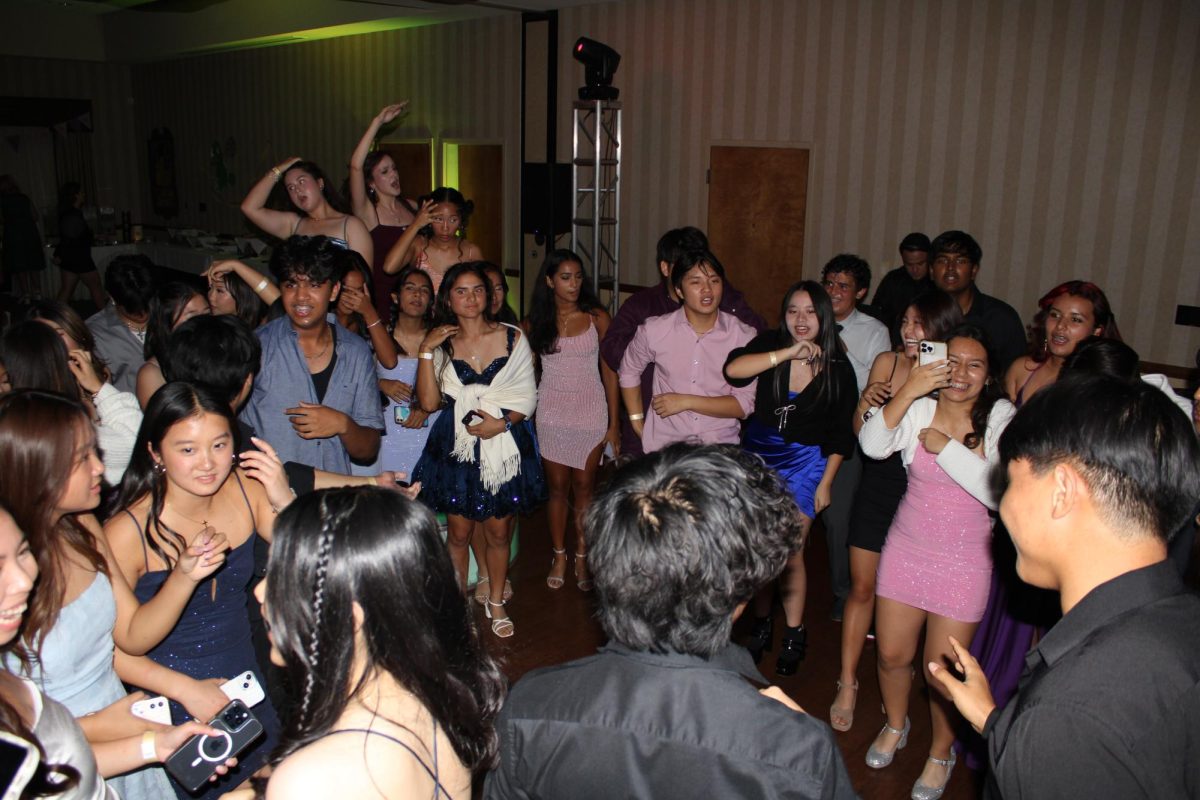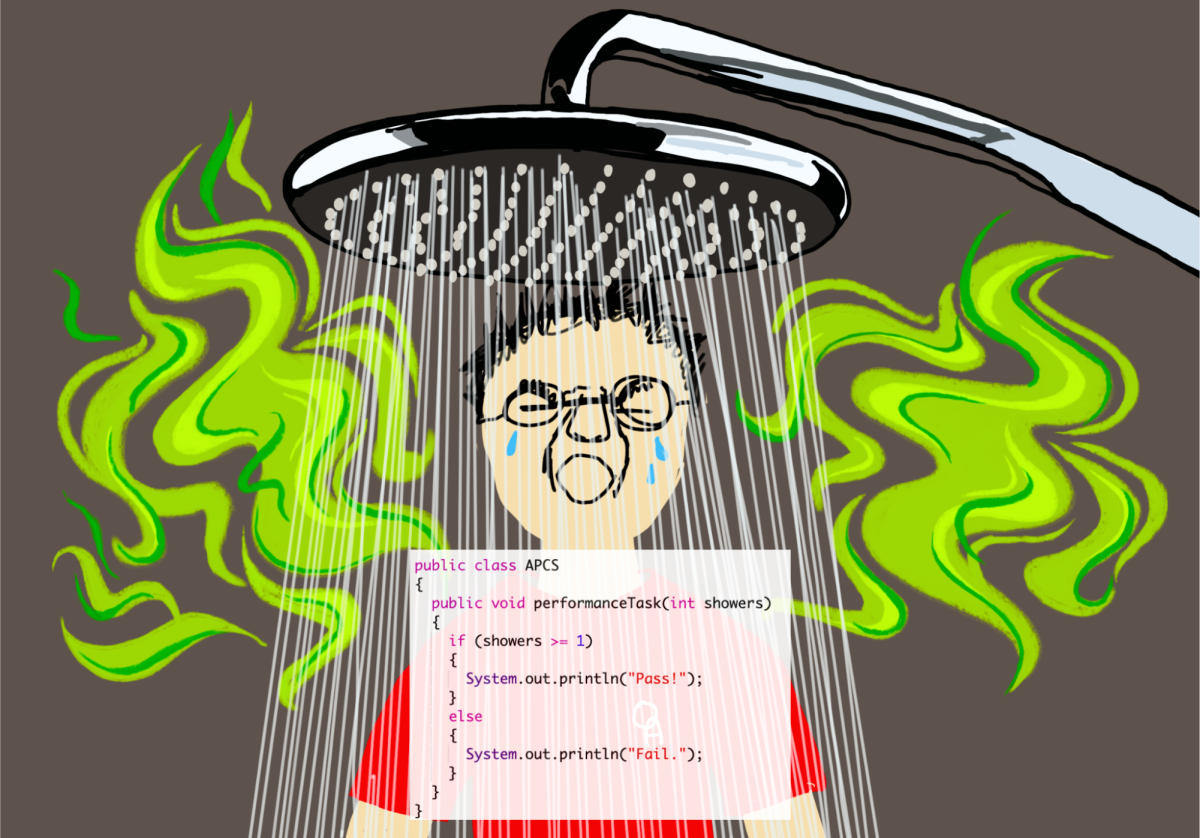As of March 1st, a new College Board update requires all AP Computer Science (APCS) students to complete an additional performance task: showering. The decision was made after numerous complaints from faculty and students about toxic fumes spilling out of the 300 building at Oxford Academy— notably, the APCS classroom. According to the College Board, this change in curriculum is expected to increase student performance and decrease health risks associated with the APCS course.
Performance from the 2022-2023 AP Computer Science Principles (APCSP) exam reported a 50% pass or fail rate. Investigations found that nearly half of test-taking students lost consciousness in the exam room, likely associated with the “radioactive levels” of body odor recorded. In Florida, an APCSP test proctor came down with cholera within an hour of the exam.
In order to increase the pass rate, the College Board will now require all APCS students to take a “detailed, thorough, and intentional” shower within 20 hours before the exam date. The performance task will be graded on a five-point scale, and students will be tested at the door with multiple body odor detection devices. Graders must be American Red Cross certified showering professionals and will be equipped with a hazmat suit and gas mask to protect against infectious airborne diseases.
Despite support from most APCS teachers and parents, critics argue that the performance task is not sufficient to address the problem.
“Showering is neglected by APCS students throughout the entire year, not solely during AP exam season. Most of these kids don’t even know what a shower is!” Stan Key, a family member of the cholera-stricken proctor from Florida, said. “These students need a detailed curriculum and multiple practice runs in order to succeed before the day of their exam. This is not a lighthearted issue — College Board must adopt a better strategy going into this.”
According to the College Board, the average APCS student goes four weeks without a shower, and during AP season, this number doubles. These students claim that the dirt on their fingers helps adhere to the keyboard better — with less slippage, they are able to code more efficiently. Additionally, the stench from their unwashed hair keeps them awake for all-nighters glued to their light-mode programming screen.
“I refuse to shower. Showering washes away the knowledge, strength, and skill that I have acquired from the code.org curriculum. And personally, I don’t think it is a problem — computers can’t smell,” String name = “red polio”, an APCSA student at Oxford Academy, said.
Since the announcement, APCS students across the nation have begun mobilizing a boycott against the College Board’s new update. Local police have yet to disarm the boycott, as they claim the stench repels them from approaching within 6 feet of the protesting site.
“It really is, quite honestly, degrading,” String name = “red polio” said. “By boycotting, we are fighting for our self-determination and bodily autonomy — rights that should be granted to all.”
























































